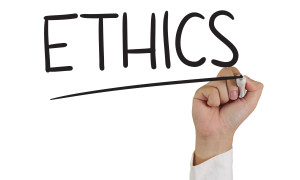Ethics and E-discovery: Rules of Conduct to Remember
There is no doubt that technology has dramatically changed the practice of law. The advent of e-discovery alone allowed for greater efficiency when it comes to the management of documents in the law office. Aside from the fact that electronic files eliminated the need for extra storage space, they also now allow for easier collection and organization. With just a few clicks, paralegals are able to get what they need and ensure that no files are overlooked.
 With e-discovery fast becoming a norm in the practice of law, it presents not just a challenge for practitioners to keep up with advancements in technology, but ethical issues as well. Courts have put more emphasis on observing duties of counsel, particularly competence, confidentiality and candor, among lawyers. But since paralegals do most of the tasks involved in e-discovery, they should also follow the same rules of conduct.
With e-discovery fast becoming a norm in the practice of law, it presents not just a challenge for practitioners to keep up with advancements in technology, but ethical issues as well. Courts have put more emphasis on observing duties of counsel, particularly competence, confidentiality and candor, among lawyers. But since paralegals do most of the tasks involved in e-discovery, they should also follow the same rules of conduct.
Let’s discuss each of the rules here:
Competence
Model Rule 1.1 states that “a lawyer shall provide competent representation to a client. Competent representation requires the legal knowledge, skill, thoroughness and preparation reasonably necessary for the representation.”
Search technology continues to evolve. To maintain competence in the field, practitioners must keep up with technological changes and upgrade skills and knowledge appropriate for e-discovery. They should be able to discern the risks and benefits of different approaches to respond effectively to requests for production or when searching for files relevant to their case.
Observing this rule of conduct entails engaging in continuing education. You have to develop and perfect techniques to help lawyers provide competent representation. We can help with these needs. We provide training courses designed to improve skills and knowledge when using computer technology and programs.
Confidentiality
Model Rule 1.6 says that “a lawyer shall not reveal information relating to the representation of a client unless the client gives informed consent.”
Under this rule, legal practitioners must not disclose client information. But since massive numbers of electronic files, like client emails, sometimes present difficulty in protecting privileged information, it’s important to use tactics, like claw back agreements or quick peek arrangements.
Then again, these tactics will not replace proper and effective review methods, combined with a well-documented process.
Fairness
Model Rule 3.4 says that “a lawyer shall not: unlawfully obstruct another party’s access to evidence or unlawfully alter, destroy or conceal a document or other material having potential evidentiary value.”
This rule means close coordination with clients is necessary to preserve evidence. Courts expect legal practitioners to promote cooperation in the discovery process to achieve efficiency. More importantly, this rule extends to observing the integrity of the profession. It’s unethical to not comply with court orders and discovery obligations.
Understand the relation between e-discovery and your ethical duties. This will help ensure you are on the right track, preserving your commitment to the legal profession. Learn more about e-discovery by signing up for the training courses we offer.